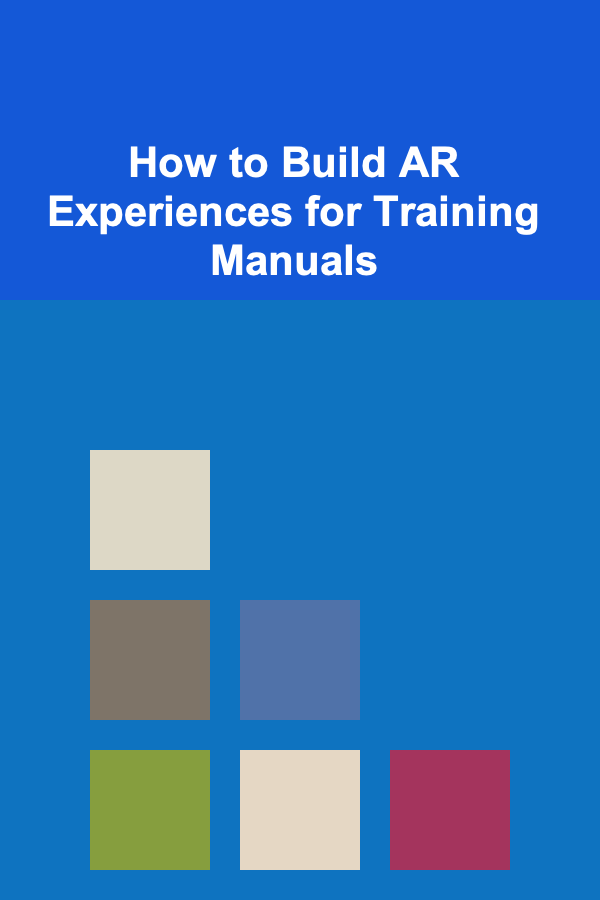
10 Essential Skills for Research Assistants in STEM Fields
ebook include PDF & Audio bundle (Micro Guide)
$12.99$9.99
Limited Time Offer! Order within the next:

Research assistants (RAs) play a crucial role in the success of scientific studies, particularly in STEM (Science, Technology, Engineering, and Mathematics) fields. These individuals assist researchers and scholars by collecting data, analyzing findings, and helping with the overall research process. However, the demands placed on RAs require them to possess a diverse set of skills---both technical and non-technical. This article explores the ten essential skills that every research assistant in STEM fields should develop to excel in their roles and contribute meaningfully to the scientific community.
Technical Proficiency in Relevant Tools and Software
Research assistants in STEM fields must be adept with a range of tools and software used in their specific field. Whether it's software for statistical analysis, laboratory instruments, or data visualization, technical proficiency is crucial for ensuring accurate and reliable research.
For instance, RAs in the biology or chemistry fields must know how to operate laboratory equipment such as spectrometers, microscopes, and chromatographs. Similarly, those working in computational sciences must be familiar with programming languages like Python, R, or MATLAB, and statistical software like SPSS, Stata, or SAS.
Technical proficiency not only enables RAs to conduct experiments or simulations with precision but also enhances their ability to troubleshoot technical problems when they arise.
Key Skills:
- Laboratory equipment operation (e.g., pipettes, centrifuges, chromatographs)
- Software for data analysis (e.g., Python, R, MATLAB)
- Knowledge of specialized tools for simulations or modeling
Strong Analytical Skills
At the heart of STEM research is the ability to analyze data and extract meaningful insights. Research assistants need to have a keen eye for detail and be able to identify patterns, trends, and anomalies in complex datasets.
In fields such as physics, engineering, and environmental science, RAs are often tasked with running experiments, collecting data, and interpreting results. A strong understanding of statistical analysis, as well as data visualization, allows RAs to make informed decisions and present their findings clearly.
Moreover, analytical skills help RAs to assess the validity of experiments, determine the causes of discrepancies, and suggest improvements. In the absence of strong analytical skills, even well-designed experiments can lead to inconclusive or misleading results.
Key Skills:
- Statistical analysis and interpretation
- Data validation and quality assurance
- Critical thinking and problem-solving
Knowledge of Research Methodology
Every scientific study is built on sound research methodology. A research assistant must understand the principles of experimental design, including hypothesis formulation, data collection methods, and the interpretation of results. Knowledge of both qualitative and quantitative research methodologies is essential, depending on the type of study.
RAs must also be familiar with ethical considerations and protocols associated with research, particularly in fields like clinical trials or animal studies. Understanding the nuances of different methodologies allows RAs to support researchers in designing experiments, gathering data, and evaluating results in a scientifically valid manner.
Key Skills:
- Designing experiments or surveys
- Understanding different research approaches (e.g., qualitative vs quantitative)
- Knowledge of ethical research practices
Effective Communication Skills
Research assistants must be able to communicate clearly and effectively with colleagues, supervisors, and collaborators. Whether they are discussing experimental results, writing reports, or presenting their findings, communication is key to ensuring that the research process runs smoothly and that insights are shared in a meaningful way.
Effective written communication skills are essential when preparing research papers, grant proposals, or presentations. Additionally, strong verbal communication skills are necessary for presenting research results at conferences, meetings, or in team discussions.
A good RA also listens well, contributing to group discussions, offering feedback, and asking questions to deepen their understanding of the research.
Key Skills:
- Writing research papers, reports, and proposals
- Presenting research findings to academic and non-academic audiences
- Active listening and clear verbal communication
Time Management and Organizational Skills
STEM research often involves multiple tasks and deadlines, including data collection, analysis, and report writing. For research assistants, effective time management and organizational skills are crucial to balancing these tasks and meeting deadlines.
An RA may need to manage several experiments at once, track various stages of research, and coordinate with different team members. The ability to prioritize tasks, set realistic goals, and stay organized is vital to ensuring that the research process progresses smoothly.
In addition, RAs are frequently required to manage data or lab inventory, so organizational skills in tracking resources, maintaining equipment, and documenting findings are critical for the success of research projects.
Key Skills:
- Prioritizing tasks and meeting deadlines
- Organizing research data, lab supplies, and records
- Managing multiple projects simultaneously
Attention to Detail
In STEM research, small errors can lead to significant mistakes in the interpretation of results or the execution of an experiment. Research assistants must demonstrate a high level of attention to detail, whether they're analyzing data, conducting experiments, or reviewing literature.
Attention to detail extends beyond the research itself. It involves keeping accurate records, ensuring that protocols are followed exactly, and reviewing findings for consistency. A single overlooked detail can compromise the integrity of an entire study.
RAs must also be able to detect errors in data collection, instrumentation, or methodology and correct them before they become a larger issue.
Key Skills:
- Reviewing and validating data and results
- Ensuring accuracy in experimental procedures
- Identifying potential issues or inconsistencies early
Teamwork and Collaboration
STEM research is often a collaborative endeavor. Research assistants need to work effectively as part of a team, coordinating with senior researchers, graduate students, and other RAs. This requires an understanding of group dynamics and the ability to work in diverse teams.
Teamwork also involves offering constructive feedback, sharing insights, and supporting colleagues when needed. The ability to collaborate on multi-disciplinary projects---whether involving biologists, chemists, or engineers---is increasingly important in today's interconnected research environment.
Successful teamwork depends not only on technical expertise but also on interpersonal skills, such as the ability to navigate group discussions, respect others' perspectives, and contribute to a positive team culture.
Key Skills:
- Collaborating on projects and research tasks
- Building professional relationships with colleagues
- Supporting team members in achieving shared goals
Adaptability and Flexibility
Scientific research can be unpredictable. Experiments may not work as expected, new research questions may arise, or unforeseen challenges can emerge. Research assistants must be adaptable, adjusting to changes in research direction, priorities, or methodologies.
Flexibility is especially important in dynamic and fast-paced environments, where unexpected results may require rapid problem-solving or a change in approach. An adaptable RA is open to learning new techniques, methods, or tools as the needs of the project evolve.
Furthermore, RAs often work across various disciplines, so the ability to switch between different research fields or adapt to new technologies is essential in STEM.
Key Skills:
- Problem-solving in unfamiliar situations
- Learning and applying new research techniques
- Adapting to changes in project scope or goals
Critical Thinking
Critical thinking is a fundamental skill for research assistants in STEM fields. RAs must evaluate data and research findings critically, assessing their validity, relevance, and potential for further investigation.
Being able to challenge assumptions, identify biases, and develop new hypotheses based on existing data is crucial. Critical thinking also extends to evaluating the scientific literature to inform current research and identifying gaps that need to be addressed.
An RA who is able to think critically is better equipped to identify potential issues in research design, data analysis, and interpretation of results, ensuring that the research process is scientifically rigorous.
Key Skills:
- Evaluating research methods and results critically
- Questioning assumptions and proposing new hypotheses
- Interpreting data with skepticism and rigor
Commitment to Continuous Learning
The landscape of STEM research is constantly evolving, with new technologies, methods, and theories emerging regularly. Research assistants must have a commitment to continuous learning, keeping up-to-date with the latest advancements in their field.
This commitment extends beyond formal education, involving self-directed learning through reading academic journals, attending conferences, or participating in workshops. A continuous learning mindset ensures that RAs remain competitive and can adapt to new challenges in their research.
Moreover, continuous learning fosters intellectual curiosity, driving RAs to explore new research areas, ask new questions, and contribute fresh perspectives to ongoing studies.
Key Skills:
- Staying current with scientific literature and trends
- Attending workshops, conferences, and seminars
- Pursuing opportunities for personal and professional growth
Conclusion
Research assistants in STEM fields are integral to the success of scientific projects. The skills required to be an effective RA extend beyond technical knowledge and laboratory proficiency; they include critical thinking, strong communication, adaptability, and the ability to work collaboratively. By honing these ten essential skills, RAs can not only support their teams but also develop personally and professionally, laying the groundwork for future career success in the scientific community.
As research methodologies continue to evolve and new challenges arise in the field, these skills will remain foundational for anyone aiming to make meaningful contributions to STEM research. By continuously developing these abilities, research assistants can enhance the quality of their work and ensure the success of the research projects they support.
Reading More From Our Other Websites
- [Home Family Activity 101] How to Design a DIY Family Photo Wall for Lasting Memories
- [Home Storage Solution 101] How to Store Books and Magazines Without Taking Up Too Much Room
- [Whitewater Rafting Tip 101] Eco-Friendly Rafting: Protecting River Habitats While Riding the Rapids
- [Organization Tip 101] How to Choose Multi-Functional Furniture for Toy Storage
- [Personal Financial Planning 101] How to Build an Emergency Fund from Scratch
- [Organization Tip 101] How to Create a Checklist for Course Completion
- [Organization Tip 101] What Should You Include in a Home Maintenance Binder?
- [Sewing Tip 101] Sewing Notion Trends: What's Hot in Threads, Fasteners, and Accessories
- [Home Party Planning 101] How to Plan a Party with a Small Guest List at Home
- [Personal Care Tips 101] How to Use Concealer to Even Out Skin Tone

How to Create the Illusion of More Space in Your Home
Read More
How To Select and Style Wall Art Groupings
Read More
How to Upsell Additional Beauty Services Alongside Manicures and Eyelashes
Read More
How to Build AR Experiences for Training Manuals
Read More
Healthy & Creative Pasta Sauces: Beyond the Jar
Read More
How to Track Songwriting Progress with a Musician Planner
Read MoreOther Products

How to Create the Illusion of More Space in Your Home
Read More
How To Select and Style Wall Art Groupings
Read More
How to Upsell Additional Beauty Services Alongside Manicures and Eyelashes
Read More
How to Build AR Experiences for Training Manuals
Read More
Healthy & Creative Pasta Sauces: Beyond the Jar
Read More